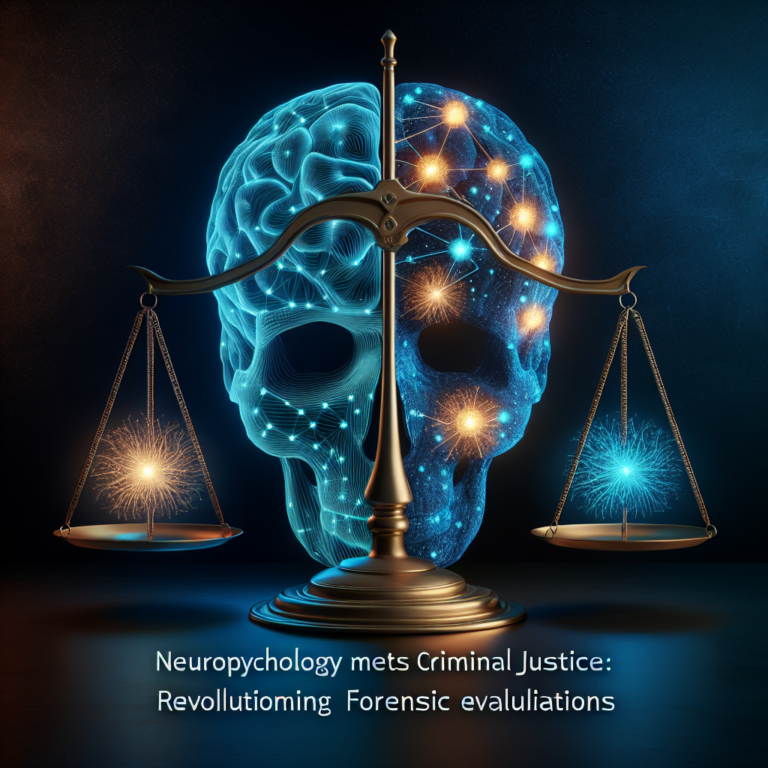
Introduction
In a world where mental health struggles are often brushed aside, the need for a deeper understanding has never been more pressing. "Beyond the Surface: How Psychological Autopsies Illuminate Mental Health Issues" explores a powerful tool that sheds light on the silent battles many face. This examination reveals critical insights into mental health, guiding families, professionals, and policymakers toward a more compassionate and effective treatment approach.
The Importance of Understanding Mental Health
Mental health issues can affect anyone, cutting across demographics and backgrounds. Yet, they often remain shrouded in stigma and misunderstanding. Psychological autopsies serve as a window into these complex struggles, unraveling the circumstances surrounding individuals’ mental states leading up to death by suicide or other unexplained circumstances. By dissecting these narratives, we can glean valuable lessons and foster a culture of empathy and awareness.
Understanding Psychological Autopsies
What is a Psychological Autopsy?
A psychological autopsy is a systematic method for investigating the psychological factors that may have contributed to an individual’s death, particularly in cases of suicide. This process employs interviews with family members, friends, and anyone who interacted with the deceased to construct a comprehensive picture of their mental state prior to death.
Key Components:
- Interviews and Data Collection: Gathering qualitative data through conversations with those close to the individual.
- Contextual Life Events: Identifying significant life events that may have influenced their mental health.
- Mental Health Histories: Compiling existing medical records and psychological evaluations.
The Role of Psychological Autopsies in Mental Health
By analyzing the layers of a person’s life, psychological autopsies help professionals:
- Understand causative factors behind suicide.
- Identify patterns that could prevent future tragedies.
- Inform treatment protocols for mental health practitioners.
Table 1: Importance of Psychological Autopsies
| Aspect | Value |
|---|---|
| Insight into Mental States | Deepens understanding of psychological factors. |
| Prevention | Aids in developing prevention programs. |
| Treatment Protocols | Informs best practices and therapeutic approaches. |
Case Studies: Illuminating Real-Life Applications
Case Study 1: The Tragic Loss of a Young Musician
Consider the story of a 24-year-old musician who experienced a meteoric rise to fame but struggled with depression and substance abuse. The psychological autopsy revealed multiple warning signs: a history of self-isolation, intense pressure from the music industry, and a lack of a supportive network.
Analysis:
This case underscores the importance of understanding the environmental and social factors impacting mental health. It reveals that fame can carry hidden burdens that significantly affect mental well-being, highlighting the need for a more robust support system for young talents.
Case Study 2: An Executive’s Silent Struggle
In another poignant example, a successful executive took their life after battling severe depression and anxiety for years. A psychological autopsy revealed that despite professional success, they felt isolated due to the competitive corporate culture, lacking both the language and space to express their mental health concerns.
Analysis:
This case illustrates how societal expectations can stifle open discussions about mental health, particularly in high-pressure environments. It highlights the urgency for corporate wellness programs that prioritize mental health.
The Broader Implications of Findings
Individual and Societal Impact
The insights gained through psychological autopsies extend beyond individual cases. They offer a societal lens through which to evaluate mental health resources and policies. Understanding the precursors to mental health crises can guide the formulation of educational programs that destigmatize mental illness and encourage open dialogue.
Creating Support Systems
Based on the findings from psychological autopsies, communities can build tailored support systems that address the specific needs of their populations. For instance, peer support groups, mental health training in schools, and workplace initiatives designed to create emotionally safe environments are essential steps.
Table 2: Recommendations for Support Systems
| Support Initiative | Description |
|---|---|
| Peer Support Groups | Facilitated discussions led by trained individuals. |
| Mental Health Education | Curriculum integration into schools and workplaces. |
| Crisis Intervention Training | Training for community members on how to respond. |
Actionable Insights for Readers
1. Foster Open Communication
Encourage a culture of openness where individuals feel safe discussing their feelings without fear of judgment. Initiatives aimed at promoting mental health awareness can help cultivate this environment.
2. Recognize Signs
Develop an understanding of the signs that indicate someone may be struggling with mental health issues. This knowledge can empower friends and family to provide support.
3. Advocate for Policy Changes
Engage with local policymakers to advocate for mental health resources, including affordable counseling and community-based support systems.
Conclusion
“Beyond the Surface: How Psychological Autopsies Illuminate Mental Health Issues” reveals profound truths about mental health and the hidden struggles many face. By embracing the insights gained from psychological autopsies, we can create a society that prioritizes mental health, fosters connections, and ultimately saves lives.
Mental health should be recognized not just as an individual issue but as a collective responsibility. Through awareness, education, and compassion, we can inspire change and cultivate a culture where mental health struggles are met with understanding rather than stigma.
FAQs
1. What are psychological autopsies used for?
Psychological autopsies are primarily used to understand the mental state of individuals who have died under complex circumstances, especially suicides. They help uncover the underlying factors contributing to these tragic events.
2. How do psychological autopsies differ from traditional autopsies?
While traditional autopsies focus on physical causes of death, psychological autopsies delve into the mental and emotional factors that may have led to the individual’s death.
3. Who conducts psychological autopsies?
Typically, trained mental health professionals, such as psychologists or psychiatrists, conduct psychological autopsies.
4. Can psychological autopsies prevent future suicides?
Yes, by understanding the factors leading to suicide, mental health professionals can develop strategies and programs aimed at prevention and intervention.
5. How can I support someone who may be struggling with mental health issues?
Encourage open communication, be an active listener, and suggest professional help if needed. Creating a safe space for discussion can make a significant difference.
By shedding light on the significant role psychological autopsies play, we take vital steps forward in understanding and addressing mental health issues, ensuring that no one suffers in silence.















